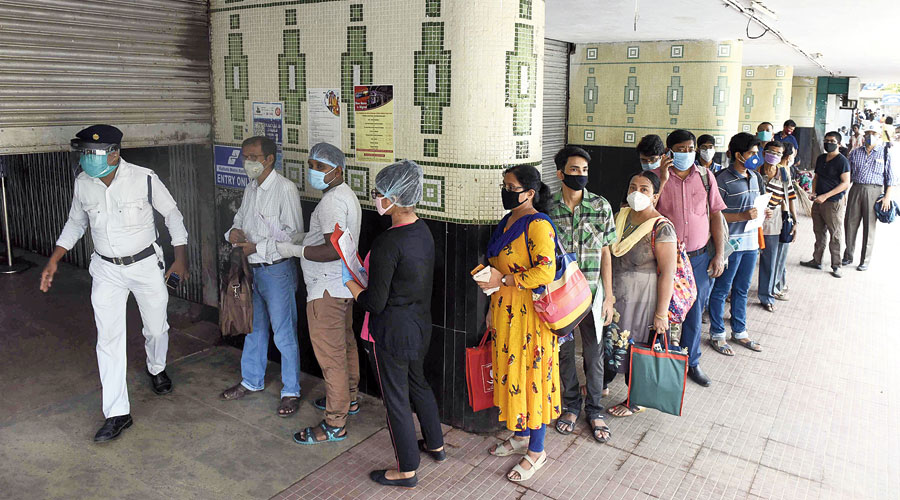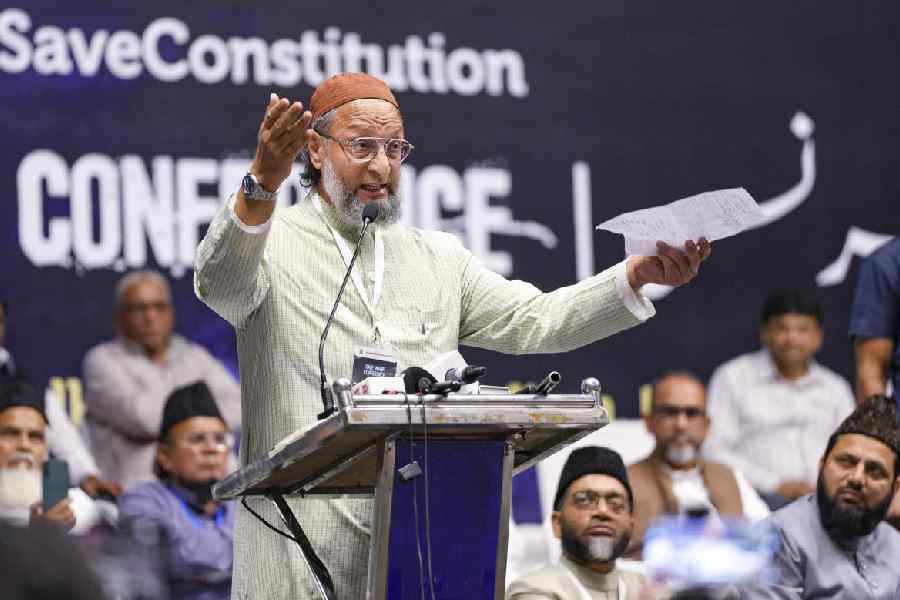Nearly 82 per cent of the successful Dalit, tribal and OBC candidates in this year’s National Eligibility-cum-Entrance Test (NEET) have cleared the cut-off set for their general category peers, debunking the “lack-of-merit” slur that makes campus life miserable for many quota students.
Of the 492,104 Scheduled Caste, Scheduled Tribe and Other Backward Classes students who have cracked the all-India medical and dental undergraduate entrance test, 403,430 or 81.98 per cent have a percentile score of at least 50 — the qualification criterion for general candidates.
Only 88,674, or 18 per cent, have got through with percentile scores less than 50 but above 40 — the relaxed cut-off for Dalit, tribal and OBC students — the results announced on Friday show. (See chart)
With 771,500 of the 1,366,945 students who took the exam having qualified — and only 80,000 medical college seats and 27,000 dental college seats available — only a small fraction of the successful candidates will actually secure admission.
All the 4.03 lakh SC, ST and OBC students with percentile scores of 50 or above will be eligible for general category seats, and those that succeed in bagging such seats will have freed up reserved seats for their less successful brethren.
The trend isn’t new: last year, too, more than 80 per cent of the Dalit, tribal and OBC students had made it to the general merit list.
Sudesh Ghoderao, Ambedkarite scholar and a teacher at Bytco College, Nashik, attributed the trend to increased awareness about the importance of education among the deprived communities. This has increased the pool of students aspiring to higher education, he said.
“Parental priorities have changed. There’s an increased realisation of the value of education. School dropout rates have fallen among SC, ST and OBC students,” Ghoderao said.
Many Dalit, tribal and OBC students have been known to face systematic humiliation from their peers and professors on campus over their presumed “lack of merit”. Some have been driven to suicide by the caste-shaming.
Dr Payal Tadvi, a PG gynaecology student at Mumbai’s Topiwala National Medical College, hanged herself last year after allegedly facing caste taunts from three senior students. Tadvi was from the Bhil tribal community of Jalgaon district, Maharashtra.
Rohith Vemula, a PhD student at Hyderabad University, committed suicide in January 2016 amid accusations of the victimisation of Dalit students by campus authorities after a prod from a central ministry.
Ghoderao did not feel that the success of examinees from the marginalised castes would reduce discrimination on the campuses.
“The discrimination is linked directly to the caste consciousness of the people from the dominant castes. Many of the well-educated among them, even some who go abroad, fail to shed their caste identity. Rather, they consolidate on the basis of their caste,” he said.
Recently, California regulators sued tech firm Cisco Systems after a Dalit engineer faced discrimination from higher-caste Indian members of his team at the company’s Silicon Valley headquarters.
However, Ghoderao said, the reserved-category students’ increasing success in competitive exams will enhance their communities’ “social capital” — that is, young aspirants from these castes will have successful, older peers to turn to for help, guidance and inspiration.
Kancha Ilaiah, author and researcher, said that most of the students from the marginalised communities who were cracking competitive exams had been educated in English-medium schools.
“Good-quality English-medium education will bring social change. In my opinion, the states keen on social change should introduce English-medium schooling from Class I,” he said.












